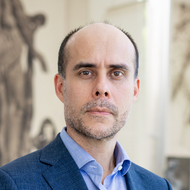Talca, Linares, and Curicó are the cities where the University of Talca is present in the Maule Region, which is characterized by having beautiful natural environments such as valleys, mountains, and high Andean grasslands. The Altos de Lircay National Reserve and Laguna del Maule lake stand out for their incredible landscapes and great biological value.
The region is also recognized for the strong development achieved by the local wine industry, whose production has been a valuable ally in the position achieved by Chile in the main global markets.
The core benchmarks for the national economic, administrative, cultural, commercial, industrial, and political activity are located at the nerve center of the country, in the Metropolitan Region, where the UTalca’s Santiago Campus is located.
While in the capital, it is possible to retrace relevant milestones of Chilean history through a tour of symbolic places such as the Government Palace (Palacio de La Moneda), the Main Square (Plaza de Armas), or the San Cristóbal and Santa Lucía hills, among others. This territory also offers the chance to visit sites of great natural beauty such as the Cordillera Yerba Loca Park or the Río Clarillo National Reserve.
The Colchagua campus is located in the province of the same name, in the Libertador General Bernardo O’Higgins Region. The place is characterized by being a narrow agricultural valley that begins at the foothills of the Andes mountain range and extends all the way to the Pacific Ocean. Thanks to its exquisite climate, the area is ideal for planting vines, which has favored the growing development of wine companies specializing in the production of vines such as Cabernet Sauvignon, Merlot, Syrah, Carménère, and Malbec.
